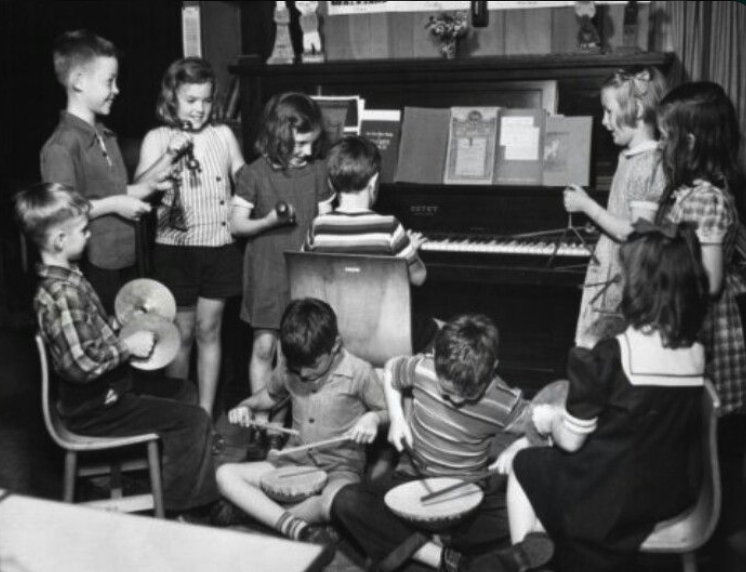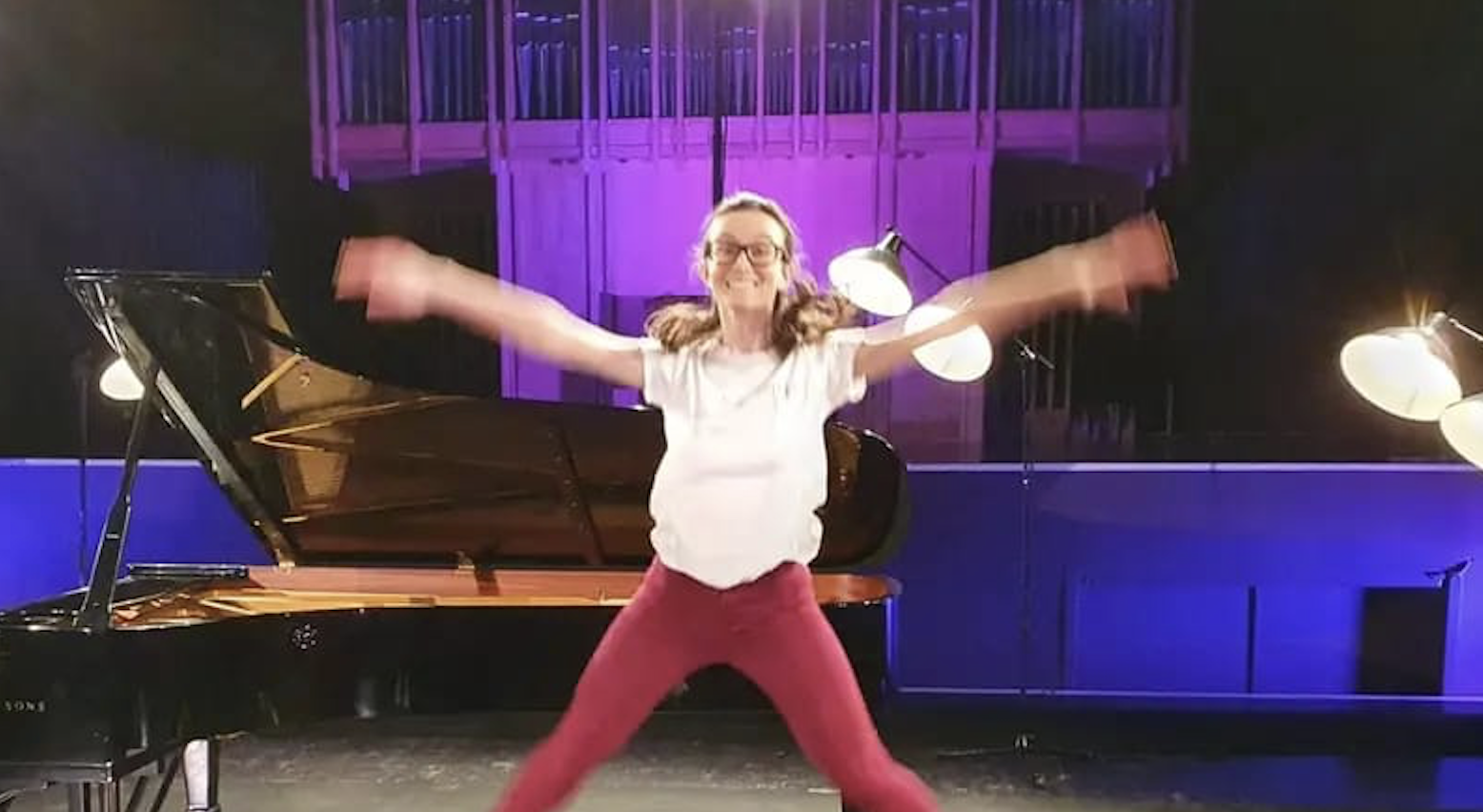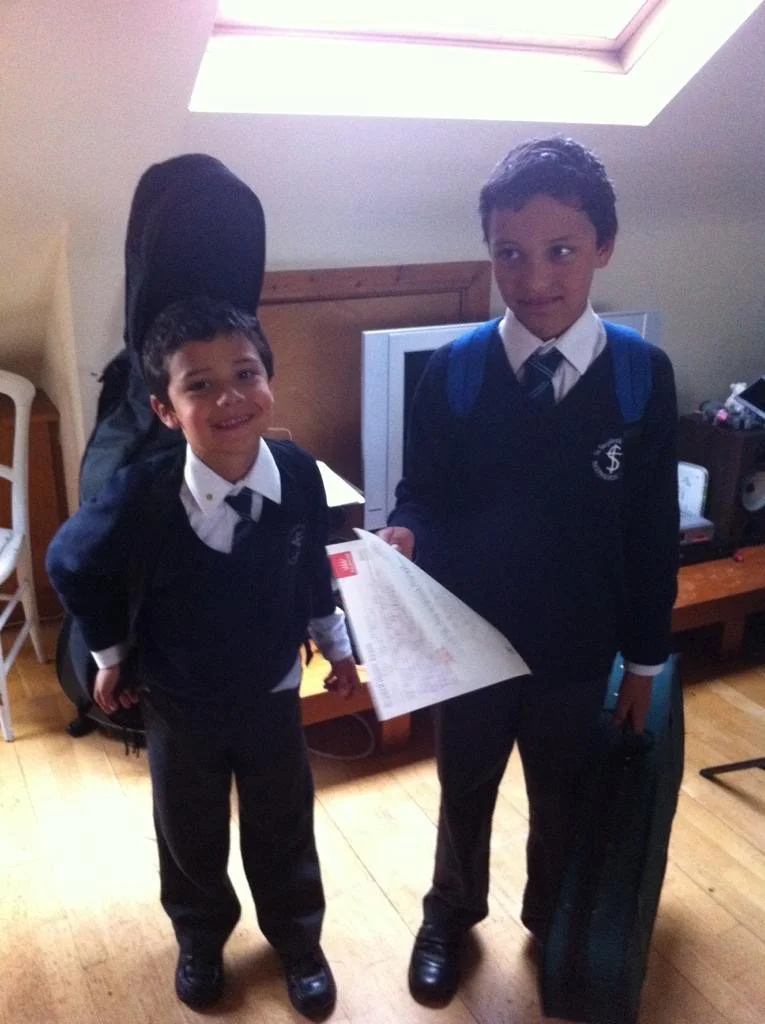
Joy of Improvisation
February’s blog explores the power of improvisation in music education — inspired by conversations with Pelican teacher and flautist Lara Ali. It reflects on how improvisation helps children build confidence, creativity, and emotional safety, turning fear into freedom and mistakes into opportunities for growth.
With insights from our teachers and real-life moments from our community, the blog celebrates music as a natural, joyful language that lives in everyday life — at school, at home, and everywhere in between.

Practice Games for Beginner Pupils
Back to music lessons means back to music practice. A dreaded word by some students, a cherished one by others. Then again, what does it mean to practice your musical instrument?

Fun Musical Games for Parents & Children Over the December Break by Pelican Team
On this month's blog, instead of a long article, we just wanted to give you some simple ways to bring music into your Christmas traditions at home, and help your children connect what they’re learning with family fun over the festive period.These are fun, simple, and totally pressure-free musical games you can enjoy with your children at home. No particular musical level needed by anyone, just a bit of creativity and joy. We’d love to hear how you get on!

Ensembles: Building communities by Christian Miller
Frederich Chopin is often cited as saying of my instrument that “nothing is more beautiful than a guitar, save perhaps two.” As with many quotes this proves slippery to track down, but the idea of the poetic master of the piano reflecting on the beauty of two acoustic guitars playing together, perhaps informally in a 19th century drawing room, gives a resonant image - although perhaps today we might relate a twin guitar line up to the music of indie rock and progressive metal bands.
By Christian Miller. Guitar teacher

How You Can Help Your Child With Their Music Practice by Serena Sheane
“Start with just 5–10 minutes a day — little and often works best.”2
“Practice can be messy — progress comes with repetition.”
“Praise effort, not perfection: ‘Great job trying the tricky bit!’”
“Find a calm spot to practise and keep a simple routine.”
“Break tough sections into tiny steps — it really helps.”
By Serena Sheane. Piano teacher

Starting your children with music by Agnes Hamilton
Lots of us want our children to access music and a musical education, but getting started can be a real challenge and quite daunting—especially if you yourself are not musical. This is where I’d like to offer some guidance and ideas. There are many different ways to bring music into children’s lives, but for this September blog I’ll focus on the very early years of learning.
By Agnes Hamilton, Founder & Director Pelican Music
10 Years of Pelican Music: A Journey of Passion, People, and Purpose by Agnes Hamilton
Unbelievably, this year marks 10 years since I started Pelican Music – a decade of highs, lows, and everything in between. We’ve gone from me teaching Violin in my living room to 30 schools and over 100,000 lessons taught to well over 1,000 children at this point. Countless concerts (one with 500 students!), numerous scholarships, conservatoires through to university orchestras - we’ve supported countless musical journeys.
By Agnes Hamilton, Founder & Director Pelican Music

Building a performance by Fiona Williams
As musicians, performance is at the heart of what we do. We want to share our music making with as many people as possible. But building a great musical performance is about more than just knowing which notes to play. We all know how a piece of music can transport us emotionally and make is feel happy, sad, at peace or giddy with joy. And at Pelican we know that a perfectly plucked open string piece played on a half-size violin can move the audience to tears of joy just as a Bach can pull your heart strings, Beethoven can stir the soul and Bernstein set your toes a-tapping.
By Fiona Williams
Practice Makes Perfect by Agnes Hamilton
Don't worry! It's not impossible and we're here to help! Here are my top five suggestions for achieving successful practice.
By Agnes Hamilton, Founder & Director Pelican Music
